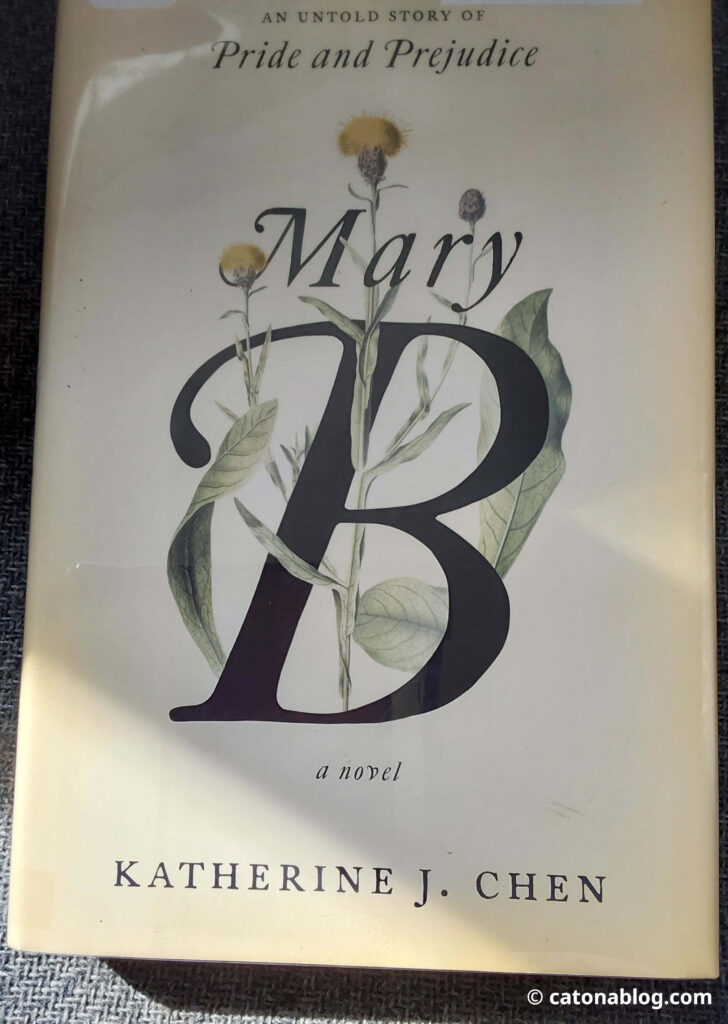
Mar 12th, 2025 Wednesday Sunny
“Pride and prejudice”, by Jane Austen, is undoubtedly my favorite romance novel. Not only did I read it for entertainment, I also used it as an English textbook – the languages, phrases, and grammar structures used by the author were rich, sophisticated, and polite (the setting was nineteenth century England, in the gentry class, after all). I can recite many quotes on cue, and I often wonder what my life would be like had I been born into that period.
Yet re-reading the same book over and over again, regardless of how much I like it, gets boring for me. Fortunately, there are countless sequels, fan fictions, and adaptations of this work, so I indulge myself with a few when I seek to kill some time.
That is how I came across this book, “Mary B”, written from the perspective of Mary Bennet, the generally neglected “bookworm” Bennet sister.
Honestly, I did not like the story. Being a fan fiction, some liberty can be expected about the author’s interpretation of characters in the original work. Still, if the writer’s imagination ran so far as to weave plot lines in ways that distort or contradict the personalities and values of the figures as they appeared in the initial book, those drawn to it hoping to relive and/or expand that universe would certainly be disappointed. I am among one of them.
Nevertheless, one sentence stood out to me (no spoiler here), as Lizzy was describing her view of marriage in front of all the house guests in Pemberly, “the success of a marriage is not commensurate with the accomplishments and virtues of the individual man or woman.” It struck a chord in me, as I realize that this might be the key to the challenges and misconceptions so many people nowadays have about relationships.
I cannot count how many times I have heard of friends who struggle in the dating realm say, “s/he does not love me because I am not good enough” or “s/he is not good enough for me”, as if finding a girlfriend/boyfriend is like a transaction, where one pays something and expects something in return. I always wanted to ask them, “so if you could be a perfect man/woman – if such people really exist in this world, then you would make a perfect husband/wife for anyone in the world?” Similarly, if there were two seemingly impeccable people of compatible sexual orientation, then surely they would make a model couple?
That could not be farther from the truth.
Looking around at all the happy unions, none of them is made of spectacular individuals – each person has their own quirks, drawbacks, eccentricities, strengths and weaknesses. Nevertheless, the beautiful relationships they build reflect the deep bonds they have established, not because they each deposit some merits into a pot, but because their willingness to work WITH each other, to problem solve as a team, to think in terms of “we” instead of “I versus you”, and to grow together. They are fully aware of the imperfections of their chosen one – you would too if you interact with them daily, for decades – and readily accept them, accommodate them, adjust their own approach to find a solution agreeable to both. They attend to the needs of their lifelong companions, knowing well that a healthy marriage supports and nourishes both parties. As a result, their match withstands the trials of better and worse days, and consistently brings joy to all.
One plus one is greater than two.
I understand!